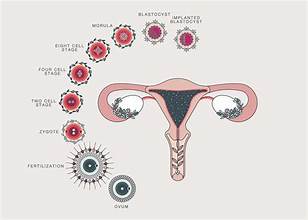Menstruation, commonly known as a period, is a vital indicator of a woman’s overall health. Typically, a menstrual cycle lasts between 3 to 5 days. However, variations do occur, and in some cases, women experience bleeding for only 2 days. This deviation from the norm can be a signal of underlying health issues, making it essential to understand its causes and potential health implications.
The Significance of Menstrual Cycle Length
The duration of a menstrual cycle can provide significant insight into a woman’s reproductive health. While it’s relatively common for cycle lengths to vary slightly from month to month, consistently short cycles warrant a closer look.
Pregnancy and Early Bleeding
One of the most common reasons for a 2-day period is early pregnancy. Bleeding in early pregnancy can often be mistaken for a regular period. This type of bleeding, known as implantation bleeding, tends to be lighter in color, ranging from pink to dark brown. It’s crucial to note that not all pregnant women experience this, and other symptoms of early pregnancy should also be considered.
Miscarriage: An Underlying Cause
Miscarriage is another significant cause of short-term bleeding. Often, women experience this type of bleeding along with abdominal pain and cramps. Miscarriage-related bleeding can be accompanied by back pain and discomfort in the pelvic area. Recognizing these symptoms early on is crucial for appropriate medical care.
The Impact of Breastfeeding
Post-delivery, women who breastfeed may experience a delay in the return of regular menstrual cycles. In many cases, periods do not resume for up to six months postpartum. Once menstruation returns, the initial cycles can be irregular and shorter than usual.
Stress and Its Effects on Menstruation
Excessive stress can have a profound impact on a woman’s menstrual cycle. High stress levels can lead to hormonal imbalances, which in turn can cause periods to be shorter and less regular. Addressing stress and mental health is crucial in maintaining regular menstrual cycles.
Birth Control Pills and Menstrual Cycle Changes
The use of birth control pills is another common reason for experiencing only 2-day periods. These pills work by thinning the lining of the uterus, which can lead to shorter and lighter periods. It’s important for women to understand how their choice of contraception can affect their menstrual cycle.
When to Seek Medical Advice
If short menstrual cycles become a regular occurrence, it is advisable to seek medical attention. Consistently having periods that last only 2 days, especially if accompanied by other symptoms, can indicate health issues that may require treatment.




